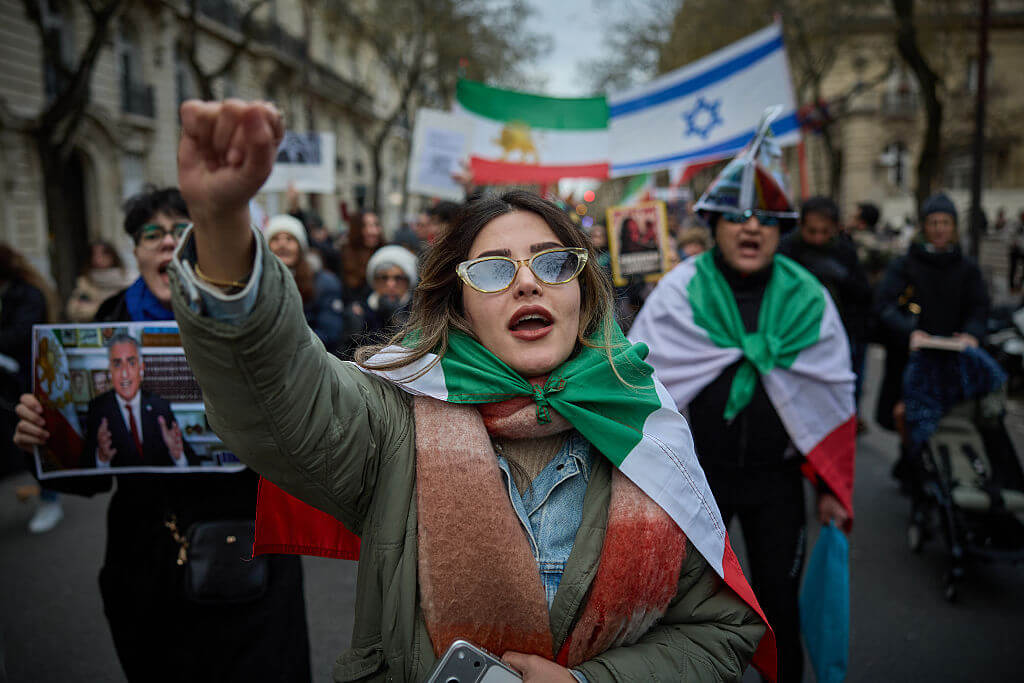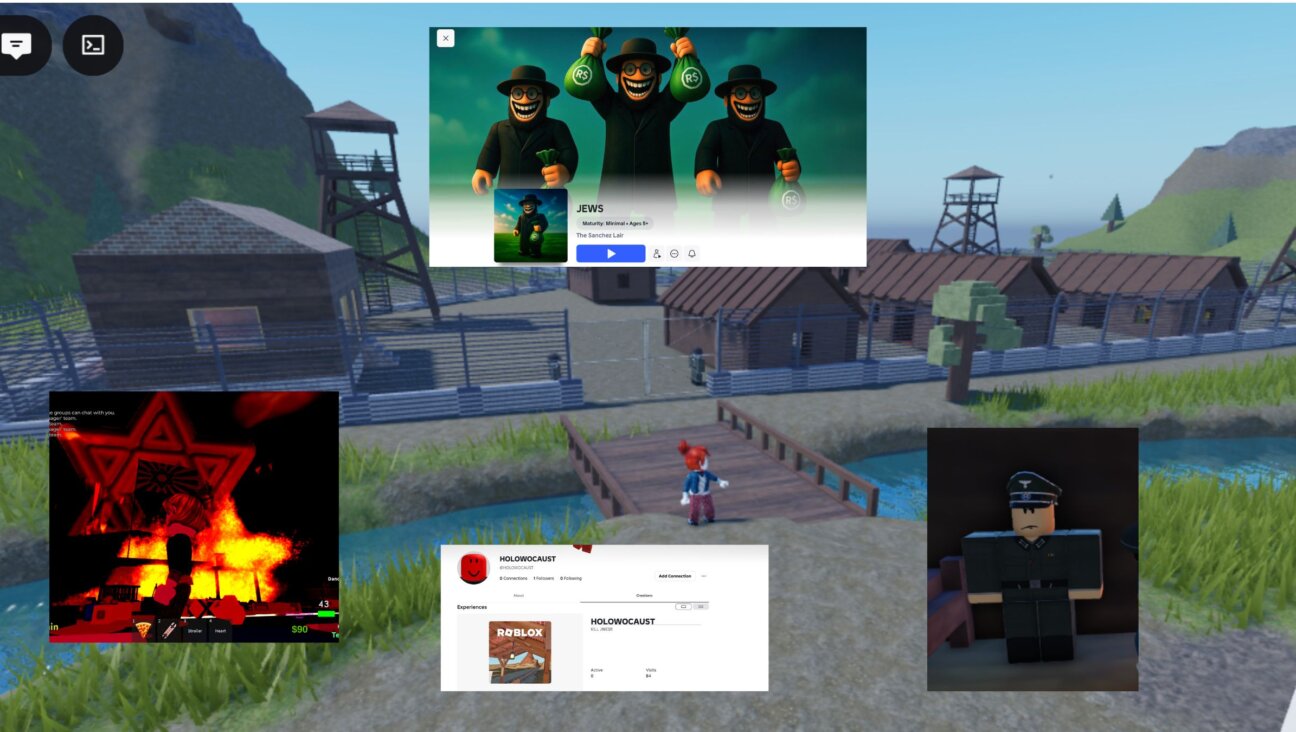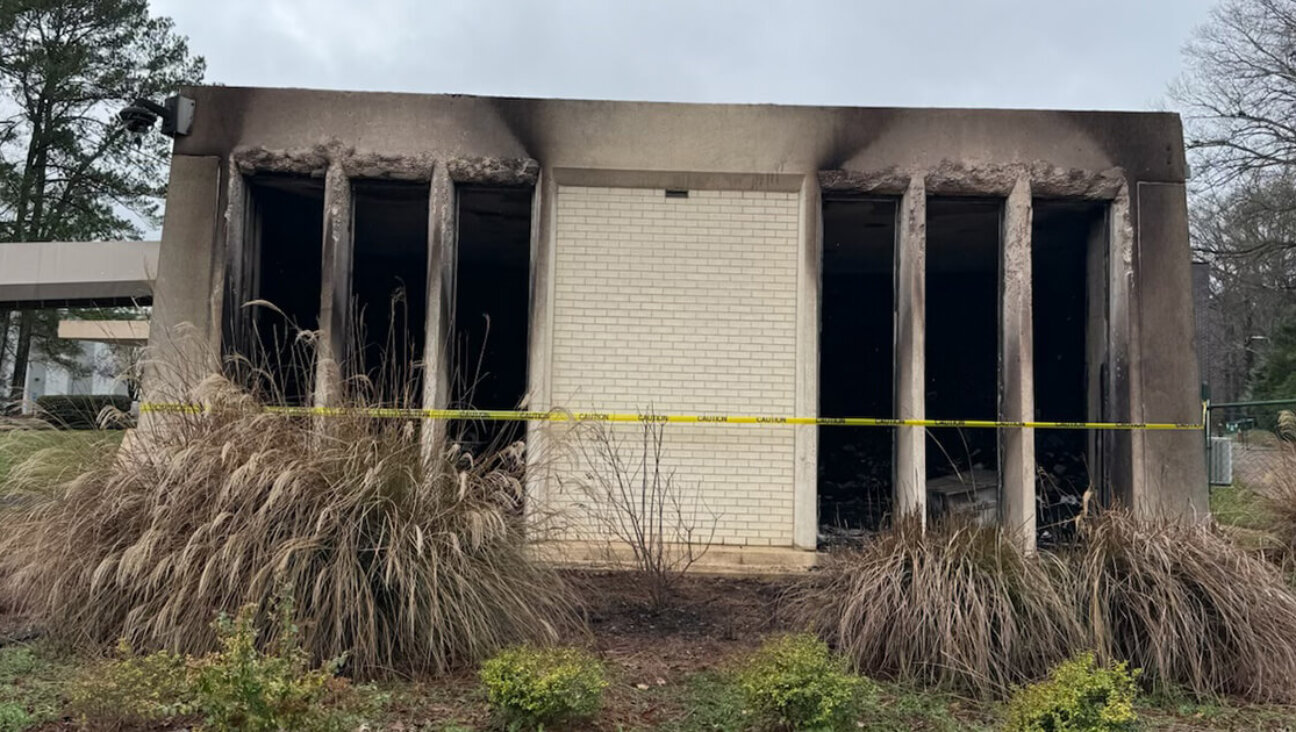throw this out
FORWARD FORUM
Since the United Nations Relief and Works Agency for Palestine Refugees was established 55 years ago, the number of Palestinians registered on its dole has expanded exponentially. What was originally intended as a temporary agency has become a vast entitlement program, feeding, housing and clothing tens of thousands of people and providing free medical care and other services.
Today, the Relief and Works Agency for Palestine Refugees, or UNRWA, accounts for 2% of the U.N. budget. By contrast, a total of 3% of the U.N.’s budget is allocated to the agency tasked with addressing the needs of all the rest of the world’s refugees and internally displaced persons, the High Commissioner for Refugees, or UNHCR.
While some of this assistance to Palestinians may be used for its intended purpose, great concerns exist with respect to the integrity of UNRWA’s operations, concerns that have only increased since Israel unilaterally disengaged from Gaza last month. With the Middle East going through an unprecedented period of change, it is time that UNRWA’s archaic independent status be rescinded and that Palestinian refugees — like all other refugees — be placed under the purview of UNHCR.
For years, many in Congress have been concerned about the possibility that UNRWA has been negligent about, and perhaps even complicit in, the utilization of its facilities and personnel by terrorist organizations in the West Bank and Gaza. Indeed, former UNRWA Commissioner General Peter Hansen has openly admitted that members of the terrorist group Hamas were on the UNRWA payroll — “I don’t see that as a crime,” he told a Canadian television station last year. Hansen was subsequently removed for making such comments, but questions remain about links between UNRWA and terrorist organizations and individuals.
To begin with, American law requires that federal contributions to UNRWA be made conditional on the refugee agency taking all possible measures to assure that no part of the American contribution will be used to furnish assistance to any refugee who has engaged in any act of terrorism. Yet UNRWA has repeatedly stated that it has never been given any mandate to administer, supervise or police the refugee camps, or to have any jurisdiction or legislative power over the refugees or the areas where they live.
UNRWA has consistently stated that the responsibility for ensuring that American dollars do not end up in the wrong hands has remained with the refugees’ host countries. But the Palestinian Authority is not a recognized sovereign government, and as currently structured and operated, the P.A. creates an atmosphere conducive to the manipulation of UNRWA facilities to promote incitement and violence.
And possible links to terrorist organizations are far from being UNRWA’s only fault. UNRWA operates with an outdated mandate, as the most cursory comparison with the U.N.’s other refugee agency reveals. Whereas UNHCR limits its coverage to refugees themselves, UNRWA extends its aids to all descendants who meet its geographical requirements, even those born two generations after the Palestinians rejected the U.N. partition plan in 1947. Furthermore, UNRWA’s archaic practice of maintaining thousands of refugees on its payroll diverges significantly from the current practices at UNHCR, which employs only administrative staff and contracts out services.
In an effort to address some of these issues, the House of Representatives twice adopted the United Nations Reform Act of 2005, both as free-standing legislation and as part of the Foreign Relations Authorization Act. This bill contained language on UNRWA funding, as well as provisions I drafted relating to U.N. offices, commissions and other entities that focus exclusively on the Palestinian agenda. These provisions require that the secretary of state report to Congress on the U.N.’s elimination of such duplicative entities and efforts, and that proportional American contributions to the U.N. be withheld until such changes have been implemented.
I want to stress that while we are not debating the efficacy of extending humanitarian assistance to the Palestinians, we can no longer support or justify the existence of UNRWA as an entity that at best prolongs, and at worst exacerbates, the difficulties faced by those in the Middle East. Not only the United States, but also the international community, cannot and must not be complicit in both UNRWA’s repeated incitement of and support for terrorism and its general policies that only perpetuate the refugee problem.
Calls to reform, in particular by Congress, have clearly gone unheeded by this refugee agency. For more than 50 years, UNRWA personnel have consistently avoided taking any responsibility for their operations and have failed to exert oversight over what is taking place in the institutions run by their agency.
They have been able to do so in part because the 1951 Refugee Convention, the international law laying out the rights accorded to refugee populations, has enshrined the Palestinian refugee issue as distinct from all others. The convention is deemed inapplicable to all those “persons who are at present receiving from organs or agencies of the United Nations other than the United Nations High Commissioner for Refugees protection or assistance” — which for the last half century has meant the Palestinians.
I would propose that in a post-Gaza-disengagement environment, when the issue of U.N. reform is at the forefront, it is time for the Refugee Convention’s inapplicability to Palestinians to be reconsidered. It is time for UNRWA’s separate status to be rescinded, and for UNRWA to be integrated into UNHCR — Gaza first.















